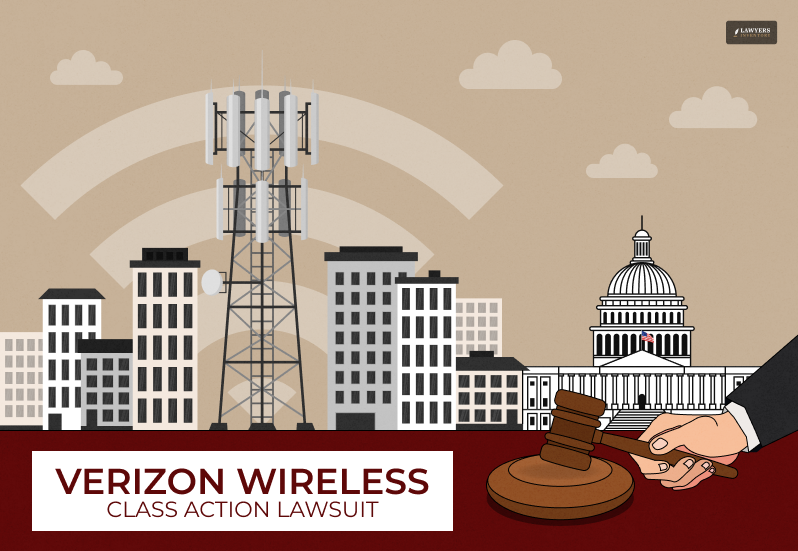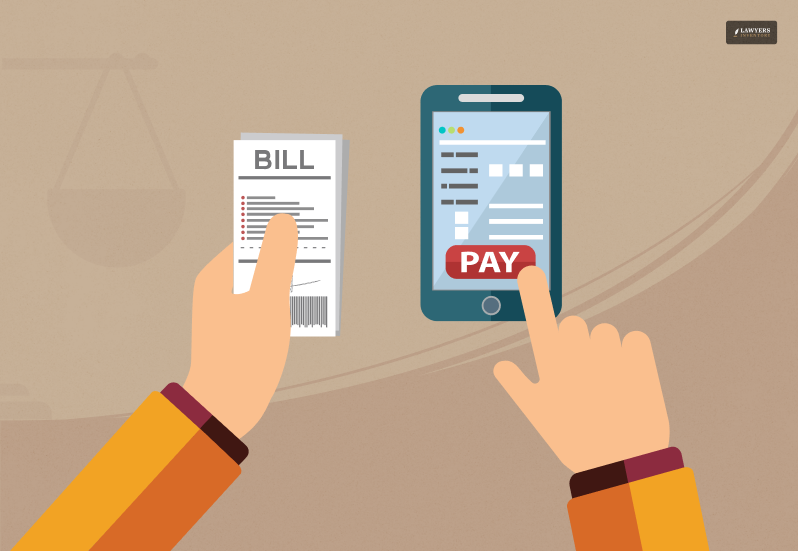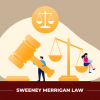
- Over 2 million customers were affected by these billing issues in the Verizon Wireless Class Action Lawsuit.
- A $100 million fund for a telecom-related lawsuit is one of the biggest in recent years.
- People are becoming more aware of hidden fees and questionable billing practices, making this settlement a hot topic.
Verizon Wireless is in the news for a big reason! The company recently agreed to a $100 million settlement fund in a class action lawsuit. This lawsuit involves claims that Verizon overcharged customers on certain fees. The settlement fund intends to reimburse affected users and address the alleged billing errors.
The $100 million settlement is a huge deal for Verizon customers and other mobile users, as it shows how seriously companies are being held accountable for billing practices. With mobile service costs constantly increasing, many people feel that transparency and fair charges are more important than ever.
With millions eligible for compensation, Verizon customers are understandably curious about their potential refunds. Additionally, they would also want to know how they might qualify for a portion of this significant settlement.
Understanding Class Action Lawsuits
One prominent illustration of the growing interest in corporate transparency in the U.S. is the contemporary class action lawsuit.
In case you are unfamiliar with the term, let me help you out! A class action lawsuit is “a lawsuit in which the court authorizes a single person or a small group of people to represent the interest of a larger group” (Garner, 2004).
Due to allegations of harm to numerous individuals, some of whom might not be recognizable, the judicial system had essentially created class action lawsuits.
The class action lawsuit’s proponents viewed it to fairly recompense the greatest number of people while resolving the matter for those allegedly responsible for the harm.
Today, class action suits, or representative suits, take place for various purposes. For instance, it includes environmental litigation, securities fraud, and consumer goods lawsuits.
Class actions are governed by various legal requirements in all 50 states of the United States of America, as well as the federal government. These requirements include defining what constitutes a class and who is eligible to be a class member.
What is the Verizon Wireless Class Action Lawsuit?

If you are familiar with the misleading plans ousted in the 72 Sold class action lawsuit, you will likely draw similarities in this one.
So, what is the Verizon Wireless Class Action Lawsuit?
Verizon Wireless is a popular name in the telecommunication industry. This US-based network operator offers home telephones, mobile phones, and internet services.
For years, the company has been a household name in America. However, recently, something happened that stirred up people’s trust.
In the case filed in New Jersey, Verizon allegedly charged “higher monthly rates than…advertised and promised” to U.S. consumers with particular wireless service plans after adding an “administrative charge” to their monthly bills.
Allegations that Verizon Wireless had been overcharging its consumers were at the heart of the complaint. In particular, it was alleged that Verizon had been charging customers for unapproved third parties.
These payments, sometimes called “cramming,” included premium text messages, ringtones, and other services. And guess what? The clients were unaware they had signed up for.
Since these costs were frequently small amounts which people easily overlooked on a monthly account, many customers were ignorant of them. Since these costs were frequently small amounts, which people easily overlooked on a monthly account, many customers were ignorant of them.
Plaintiff’s Allegation
Verizon “omits or misrepresents” these costs on customers’ invoices, according to the plaintiffs, deceiving them. Verizon has reached a settlement sum with the plaintiffs but denies any wrongdoing.
The complaint alleges that Verizon began charging administrative costs for each phone line in 2005 at 40 cents per month; by 2022, the prices had risen to $3.30 per line.
According to the plaintiffs, Verizon “unilaterally sets and increases the amount of the Administrative Charge based on its internal revenue targets.” Verizon’s website states that these fees cover a variety of charges, including those related to cell site upkeep and rental fees.
According to Verizon, administrative costs will remain in place and might even increase. Nonetheless, the business promises to increase consumer cost transparency as part of the settlement.
Impact on Affected Customers
The fraudulent charges significantly impacted several Verizon customers. Some people suffered significant financial losses due to these charges increasing over time.
To challenge the charges, customers had to contact Verizon, which frequently required drawn-out wait times and vexing discussions.
Others made hundreds of dollars in overpayments due to the unreported charges for months or years. Verizon’s consumer base was extremely irritated and distrustful due to this circumstance.
Legal Proceedings and Final Settlement Agreement
When a class of impacted consumers filed a lawsuit against Verizon Wireless, the legal process got underway.
As other clients came forward with comparable grievances, the case gained momentum. And something shocking came to light during the legal proceedings. People found out that Verizon had permitted third-party businesses to charge customers’ accounts. This was something that the customers did not have any idea about!
Verizon Wireless consented to a deal to settle the allegations following protracted discussions. A total of $100 million was paid out in the final settlement to compensate impacted consumers.
The purpose of this settlement fund was to pay legal fees and reimburse consumers for the unlawful charges. Customers impacted by the cramming activities might submit claims to get a share of the settlement.
Comparison with Other Class Action Settlements

The $100 million settlement in the Verizon Wireless class action lawsuit has created a lot of buzz. This is partly because it’s huge but also because it highlights a recurring issue in the telecommunications industry.
However, you must know that Verizon isn’t the first telecom company to face a major lawsuit over customer billing practices. Here’s how this settlement stacks up against other notable class actions in the industry.
AT&T’s Data Throttling Settlement
One similar case was AT&T’s $60 million settlement in 2019 over accusations of “data throttling.” AT&T customers claimed that the company promised them “unlimited” data but saw their speeds slowed after hitting certain data limits.
While the payout was lower than Verizon’s $100 million, it was still significant, setting a precedent for clearer marketing around data plans.
Both cases highlight customer frustration with unclear or misleading charges, but Verizon’s case focuses more on hidden fees, while AT&T’s was about performance limitations.
Sprint’s Overcharging for Add-Ons Settlement
Sprint also faced a class action lawsuit for allegedly charging customers for add-on services they didn’t authorize. This case led to a $15 million settlement, much smaller than Verizon’s.
However, the issue was similar: the company was charging the customers for services they didn’t ask for or weren’t aware of.
Sprint’s case underscores the importance of transparency in billing, an area that seems to be a recurring problem in the industry.
Compared to Verizon’s case, Sprint’s settlement was less impactful in terms of dollar amount but still highlighted a common billing concern.
T-Mobile’s Premium Text Message Settlement
T-Mobile settled a $90 million lawsuit 2014 over premium text message fees, which customers claimed they hadn’t signed up for.
This “cramming” case—where the telecommunication company added charges to a bill without the customer’s consent—showed another way telecom companies have faced scrutiny.
T-Mobile’s settlement was close to Verizon’s and emphasized the need for fair billing practices.
While Verizon’s case focused on administrative fees, T-Mobile’s involved unauthorized third-party services, but both pointed to the need for stronger billing standards.
Customers Claimed Their Share in Verizon Settlement
As soon as the word spread about the $100 million settlement, customers started filling up the form and claimed their share. But did everyone get their part?
The answer is NO. So, who was eligible?
According to the settlement statement, only customers using Verizon’s postpaid services (data plan or wireless plan) from 1st January 2016 to 8th November 2023 were eligible for this claim.
Additionally, they had to prove they got charged a monthly administrative fee. In that case, they would get up to $100 for the class action lawsuit.
However, the deadline for the claim was 15th April 2024. So, if you missed your chance, I could only say I feel sorry for you!
Which Lawyer to Seek When You Face a Similar Situation?
It can be overwhelming if you find yourself in a similar situation—facing unexpected charges or hidden fees from a service provider. You might wonder if you should seek legal help, and if so, which kind of lawyer would be best suited for the job.
For cases involving hidden fees, unauthorized charges, or unfair billing practices, the best lawyer to consult is typically a consumer rights attorney or a class action lawyer.
Consumer rights lawyers specialize in protecting individuals from unfair practices by companies. They can help you understand your rights and assess if you have a valid claim.
A class action attorney might be the best choice if the issue affects a large group of people, like in the Verizon lawsuit.
Class action attorneys have experience with cases where the same issue affected multiple customers. In these cases, they know how to navigate the complexities of these larger lawsuits.
They can also help organize a case on behalf of many people, increasing the chances of a fair settlement.
The Impact of the Settlement on the Telecommunications Industry
The $100 million Verizon Wireless settlement is more than just a big news story—it’s a turning point for the telecommunications industry. This settlement emphasizes how important it is for telecom companies to be transparent with their customers, especially regarding billing practices.
One of the main takeaways from this settlement is that companies may now face greater scrutiny over their billing practices.
For years, telecom companies have added small fees that can be hard for customers to understand or notice. With this settlement, other companies might think twice before adding hidden charges, knowing that consumers and regulatory bodies are watching closely.
The Verizon settlement could lead to clearer billing practices across the industry. In response, companies might simplify their bills, reduce or eliminate unclear fees, and communicate charges more openly.
Improved transparency will help customers better understand their bills and reduce the chances of overcharges. This is a win for consumer rights, as it means more straightforward, honest pricing from telecom providers.
This settlement also sets a precedent for future lawsuits in the telecom sector. With such a large payout, this case shows that customers can hold companies accountable through class action lawsuits if the company has changed them unfairly.
For law firms and consumer rights advocates, the Verizon case provides a powerful example of encouraging other consumers to speak up if they feel mistreated.
Ultimately, this settlement doesn’t just affect Verizon customers—it impacts the entire telecom industry by pushing for more transparency, fairness, and accountability.
It reminds companies that customer trust is crucial and that fairness in billing is essential for a positive reputation and customer loyalty.
Read Also:
- How A Personal Injury Lawsuit Can Change Your Life
- Ozempic Lawsuit: Can You Get Justice in Healthcare?
- Kennedy Funding Lawsuit and the Exploitation of Arkansas Statute of Frauds
- Smoothstack Lawsuit: Beware of Unlawful Wage Scheme and Employment Contracts











0 Reply
No comments yet.